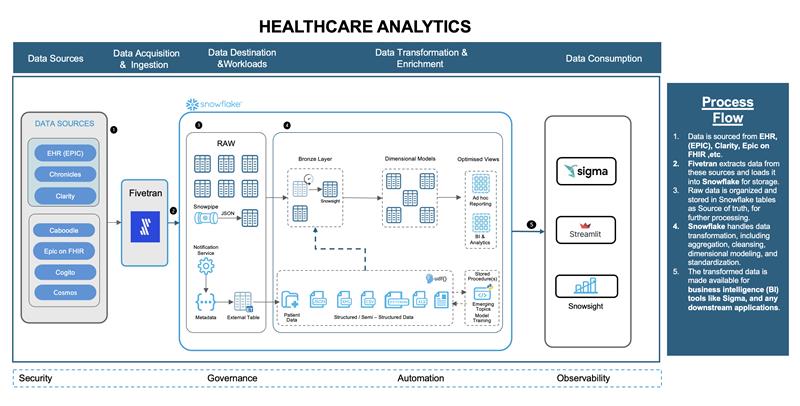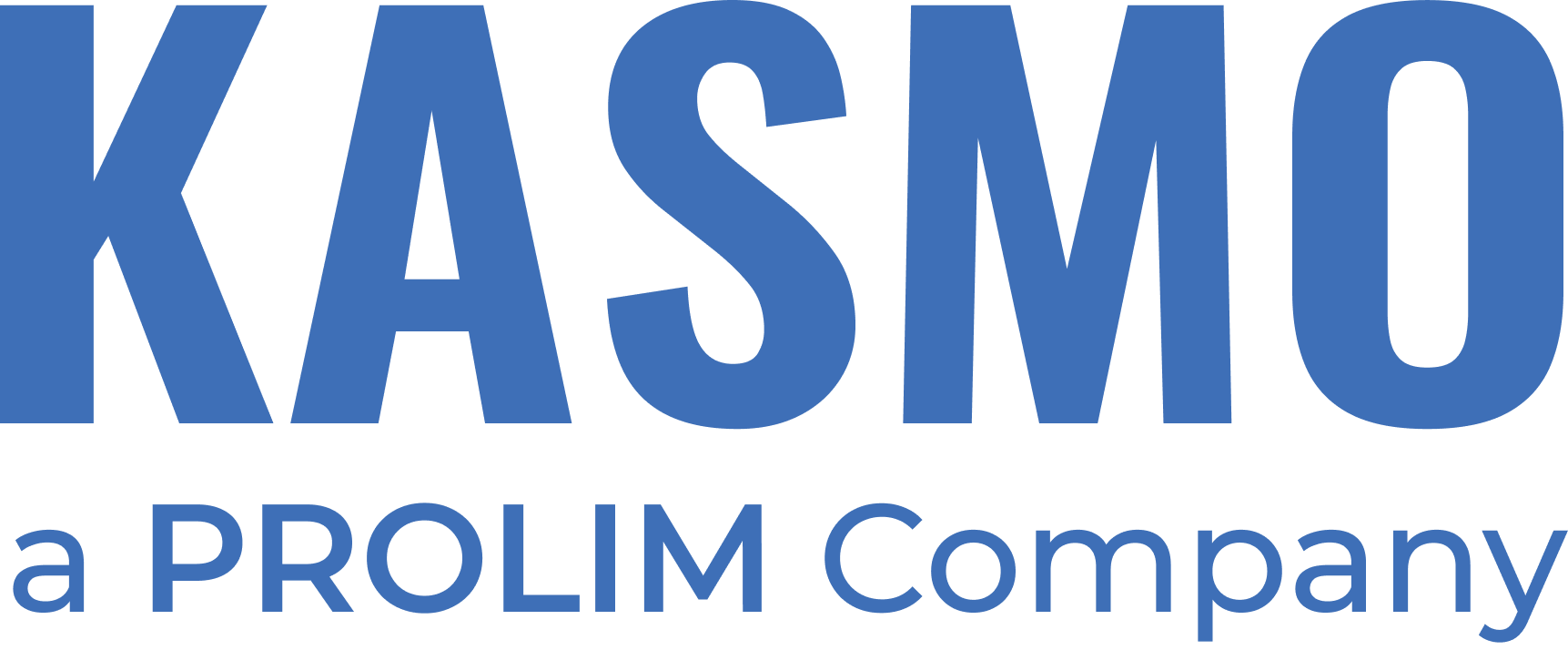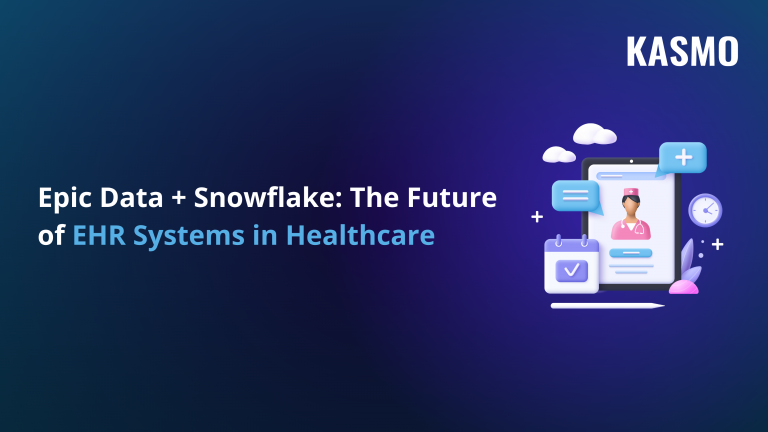Introduction
Data has become crucial to making informed decisions in every industry. In the healthcare industry, unfragmented data is most crucial as it helps industry leaders make strategic decisions and create strategies that enhance patient care and experience. Having the best Electronic Health Record (EHR) systems in healthcare is crucial for companies to store and analyze data easily.
Enhancing operational efficiency has become easy with Epic Healthcare. Epic stands at the forefront of Electronic Health Record (EHR) solutions. 85% of hospitals and clinics that have reached Healthcare Information and Management Systems Society (HIMMS) Stage 7 leverage Epic Healthcare to increase patient safety and profitability.
However, as healthcare organizations strive to gain actionable insights from their data, the need to integrate Epic’s data with other cloud-based platforms has become crucial. Snowflake AI Data Cloud – the leading cloud data platform, empowers healthcare providers to achieve a unified, scalable, and secure data environment. Kasmo – a true-blue partner of Snowflake, with its expertise in data integration and migration, enables healthcare organizations to harness the full potential of their data by integrating and migrating Epic healthcare records in Snowflake.
Understanding Epic EHR Systems
Epic Systems is a privately held healthcare software company based in Verona, Wisconsin. Founded in 1979, Epic has grown to become a dominant player in the EHR space, with its software used by numerous top-tier hospitals and healthcare service providers. Epic’s suite of applications supports various functions, including patient registration, clinical systems for doctors and nurses, laboratory systems, and billing systems for insurers.
These are the two critical data management components in Epic:
- Clarity: It is a replication of Epic’s operational database that that’s made for customers to use.
- Caboodle: Epic’s enterprise data warehouse that combines data throughout the organization designed to support faster and easier analytics.
While Epic’s systems are robust, they primarily focus on clinical and operational data. To achieve a holistic view of patient health and organizational performance, integrating Epic’s healthcare records with other enterprise systems on a cloud platform is crucial.
Why Businesses Need to Integrate Epic Data with Snowflake
While Epic EHR systems excel in managing clinical data, they often operate in isolation from other critical enterprise systems. EHR systems in healthcare organizations need to be consolidated with other operational data to not only better patient care but also optimize revenue models without compromising customer experience.
The healthcare industry relies on various applications and departments such as finance, human resources, supply chain management, and customer relationship management, to provide a holistic experience to their patients. The lack of integration between these systems can lead to data silos, operational inefficiencies, and missed opportunities for creating comprehensive data analysis.
Integrating Epic’s healthcare data with other enterprise systems allows healthcare providers to:
- Achieve a Unified View: Combine clinical data from Epic with operational data from other systems to create a comprehensive view of patient health and organizational performance.
- Enhance Decision-Making: Leverage integrated data to make informed decisions that improve patient care, optimize operations, and drive strategic initiatives.
- Improve Efficiency: Streamline workflows by eliminating manual data entry and reducing the risk of errors associated with data duplication.
- Ensure Compliance: Maintain compliance with regulatory requirements by ensuring data consistency and accuracy across systems.
Challenges in Integration of Epic Healthcare Records with Other Operational Data
Healthcare providers may experience some challenges while integrating Epic’s healthcare data with other operational data:
- Data Complexity: Epic’s data models can be complex, requiring careful mapping and expertise to be integrated with other operational data.
- Data Security and Compliance: Ensuring data security and compliance with regulations such as HIPAA is critical during the integration process.
- Resource Constraints: Organizations may face limitations in terms of time, budget, and expertise to execute the integration effectively.
Integrate Epic Data with Snowflake – Here’s Why
Snowflake is the leading AI Data Cloud platform that enables organizations to store, analyze, and share data in a secure and scalable environment. Unlike traditional data warehouses, Snowflake’s architecture separates compute and storage, allowing for independent scaling and optimized performance. These features of Snowflake empower healthcare organizations to store and analyze their Epic healthcare data for better operational efficiency and patient care:
- Elasticity: Automatically scale compute resources up or down based on workload demands, ensuring optimal performance.
- Concurrency: Support multiple users and workloads simultaneously without performance degradation, because of its multi-cluster architecture.
- Data Sharing: Facilitate secure and governed data sharing across organizations, enabling collaboration and data monetization opportunities.
- Security and Compliance: Adhere to industry standards and regulations, including HIPAA, to ensure data security and privacy.
By integrating Epic’s data with Snowflake, now you can upgrade EHR systems in healthcare. Leverage these features to build a modern data architecture that supports advanced analytics and provides real-time insights.
Why Choose Kasmo for Epic Data Integration with Snowflake

Kasmo, a global Premier Partner of Snowflake, specializes in consolidating data from disparate systems into Snowflake to create a single source of truth. With expertise in integrating Epic EHR systems with Snowflake, Kasmo offers a comprehensive approach to healthcare service providers:
- Data Extraction: Our experts leverage tools like Fivetran to extract data from Epic’s Clarity and Caboodle repositories, ensuring minimal impact on operational systems.
- Data Transformation: We employ data transformation tools to cleanse, enrich, and model the data for analytics purposes.
- Data Loading: Our experts then load the transformed data into Snowflake, ensuring optimal performance and scalability.
- Data Governance: We implement data governance practices to ensure data quality, consistency, and compliance are aligned with regulatory requirements.
- Advanced Analytics: We leverage Snowflake’s capabilities to perform advanced analytics, including predictive modeling and real-time reporting.
By partnering with Kasmo, healthcare organizations can accelerate their journey towards providing better patient care, faster diagnosis and unlocking the full potential of their Epic healthcare data.
Best Practices for Integrating Epic EHR Systems with Snowflake
Integrating Epic’s healthcare data with Snowflake requires careful planning and execution. By following these best practices, healthcare organizations can achieve a successful integration of Epic’s data with Snowflake, driving improved patient care and operational efficiency.
- Define Clear Objectives: Establish clear goals for integration, such as improving patient outcomes, optimizing operations, or enhancing decision-making.
- Assess Data Quality: Evaluate the quality of the data in Epic’s systems and address any issues related to data integrity, accuracy, or consistency.
- Implement Robust Data Governance Policies: Establish data governance policies and procedures to ensure that you maintain data quality, security, and compliance.
- Monitor and Optimize Performance: When you are integrating Epic healthcare data with Snowflake, you need to continuously monitor the process and optimize if needed to maintain efficiency and effectiveness.
- Foster Collaboration: Encourage collaboration between IT, clinical, and operational teams to ensure all your data is successfully aligned for integration.
Conclusion
EHR systems in healthcare can truly achieve their full potential by integrating all the data with Snowflake. If you are using Epic Systems – the largest EHR vendor, then you need to swiftly integrate all the healthcare data with Snowflake to achieve a 360–degree view of both operational and patient data and understand how you can create better patient care. Integrating Epic EHR systems with Snowflake is a strategic move that enables healthcare organizations to unlock the full potential of their data. With Kasmo’s Snowflake expertise, healthcare providers can achieve a unified, scalable, and secure data environment that drives improved patient care, operational efficiency, and informed decision-making.



